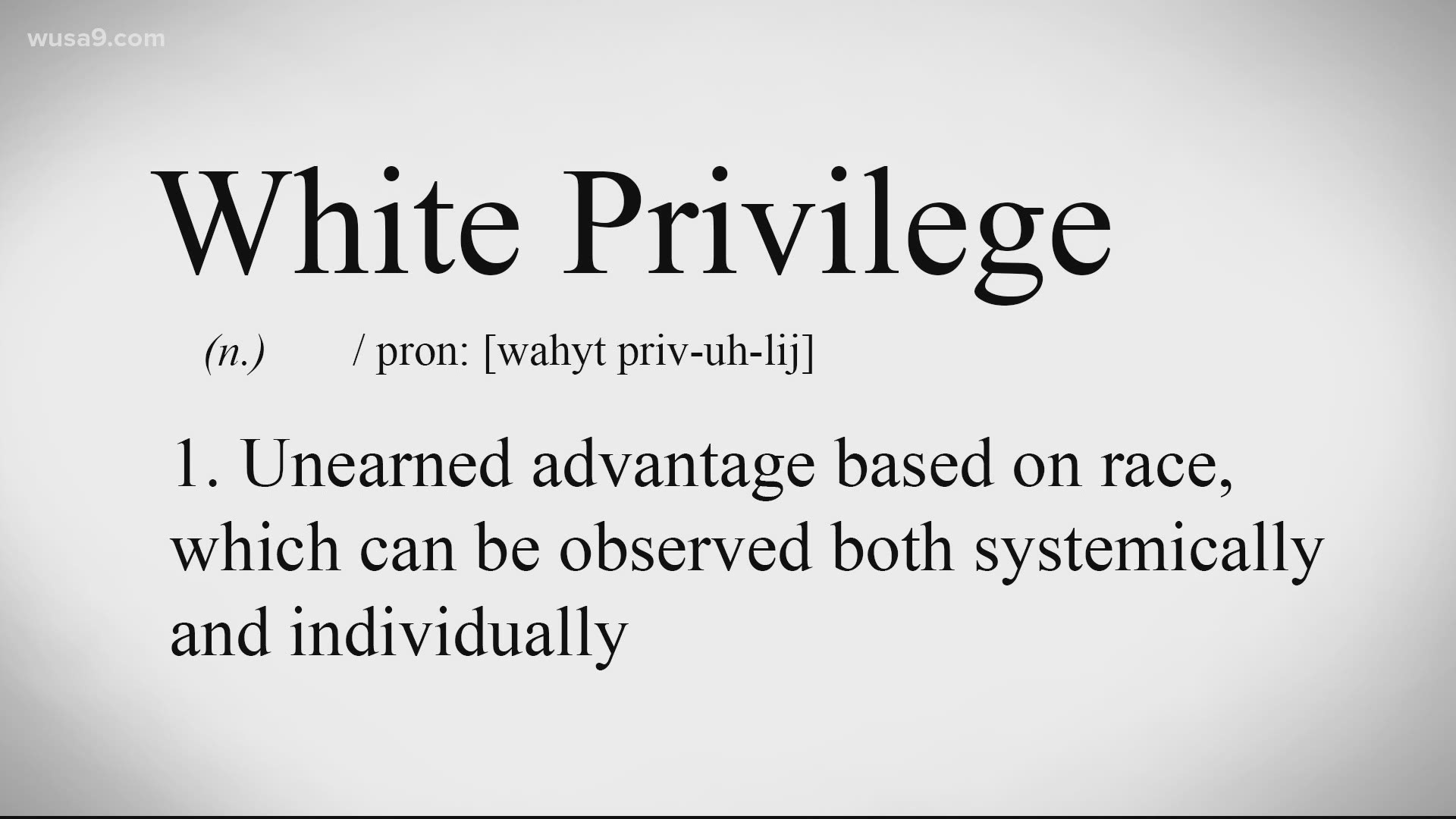WASHINGTON — How many times have you heard, "We need to have a real discussion about race in this country," and then, nothing? No discussion is had.
Well, it seems that now, due to the racial disparities exposed by the coronavirus and people marching in the streets to protest racial inequality, America might finally be ready to have a real discourse.
I say "might," purposely. I mean, it seems like you want to. You're buying books, watching lectures on YouTube, checking out podcasts, arranging Zoom listening sessions at the job -- you’re checking all the boxes, except one.
There is one thing that some of you don’t seem to want to talk about, and if you’re not willing to talk about it, then the conversations are not real, and that’s white privilege. You’re going to have to accept the fact that it exists, and just because you can’t see it, doesn't mean it’s not there playing a role in all our lives.
First written about in 1988 by scholar, educator and anti-racism expert Peggy McIntosh, she defined the term as an, "unearned advantage based on race, which can be observed both systemically and individually." She likened it to "an invisible weightless knapsack of special provisions, assurances, tools, maps, guides, codebooks, passports, visas, clothes, compass, emergency gear, and blank checks" -- pretty thorough. However it's said, it's been a foundational building block of this nation since the first arrival of the first 20 and odd slaves on our shores in 1619.
When the fact of white privilege is pointed out, there will always be at least one person who says, "I don’t have any privileges. I came up hard. My life is tough. Nobody gave me anything."
To be clear: No one is saying that your path in life hasn’t been hard, but any difficulties you've felt had nothing at all to do with being white. Race is a wall, purposely constructed around all aspects of our society; a wall that Black people run into again and again.
Home ownership was walled off through redlining and the denial of loans and programs made available to white Americans, like the G.I. Bill after WWII. This wall of denial directly resulted in the wealth gap between whites and Blacks that we see today.
The wall runs through healthcare. We see it in the fact that while Black people make up 13% of the population, we count for almost 25% of the deaths due to the coronavirus -- numbers that were then tried to be blamed on a community that is often denied basic nutrition and health care services. Again, it's due to the wall.
We see the wall in the disproportion rates of mass incarceration, racial profiling and police brutality that currently have people in the streets. We see the wall in the hiring and promotional practices of corporate America. We see it in the sports world. How many times have we talked about the lack of Black head coaches in the NFL? College, supposed institutions of higher learning, are even worse. That's the wall.
And those are just the big things. We haven’t even got to how the wall impacts the mundane aspects of everyday life; everything from how and where you walk, to how you dress, to how you wear your hair, to what you name your children. We butt up against the wall daily, sometimes, fatally. It's privilege that keeps you on the other side of that wall, and it's privilege that allows you to not see it.
If you truly want to have this conversation, if you want to move forward, then you must accept that white privilege exists. Accepting this fact is the only way that we can finally get to the job of tearing down the wall that stands between us.

